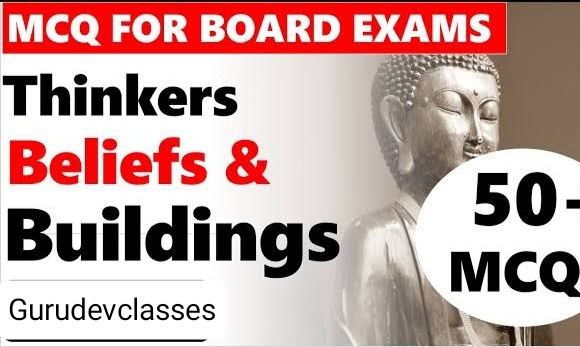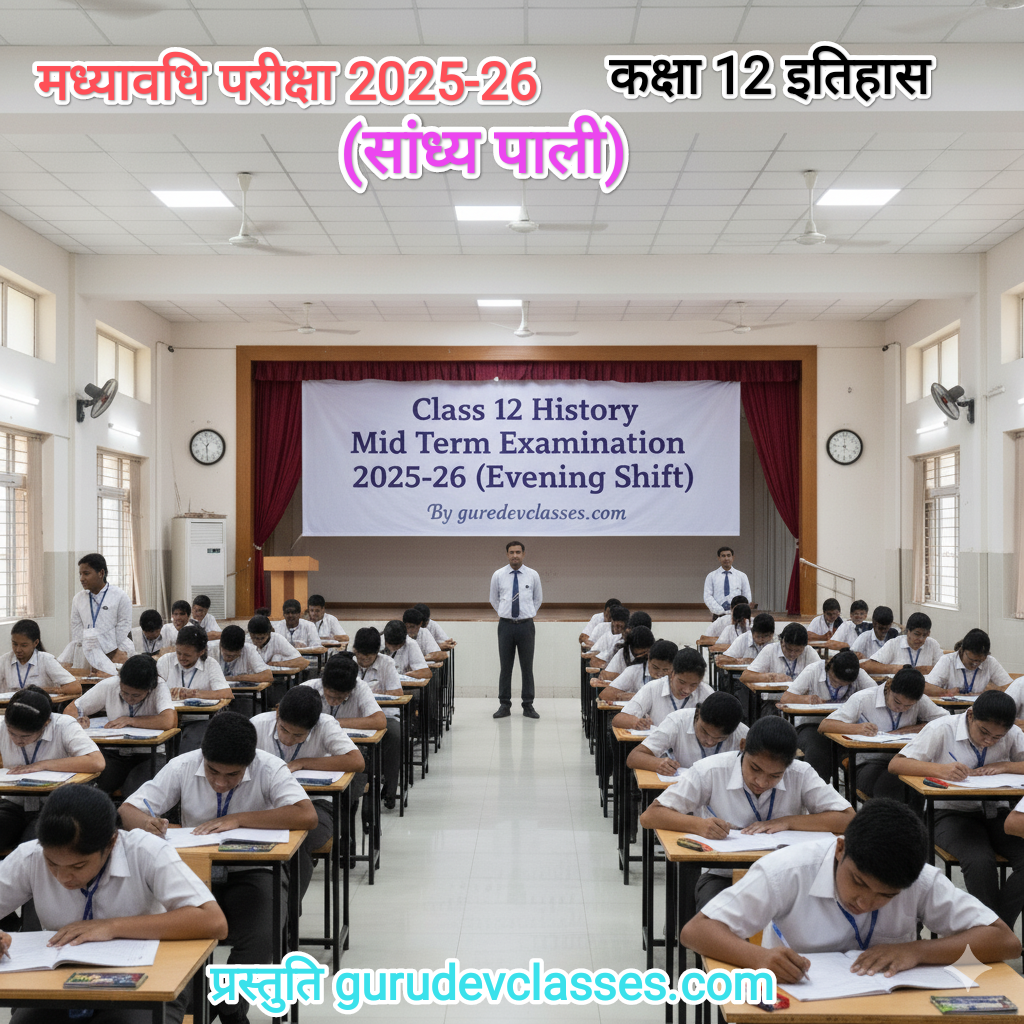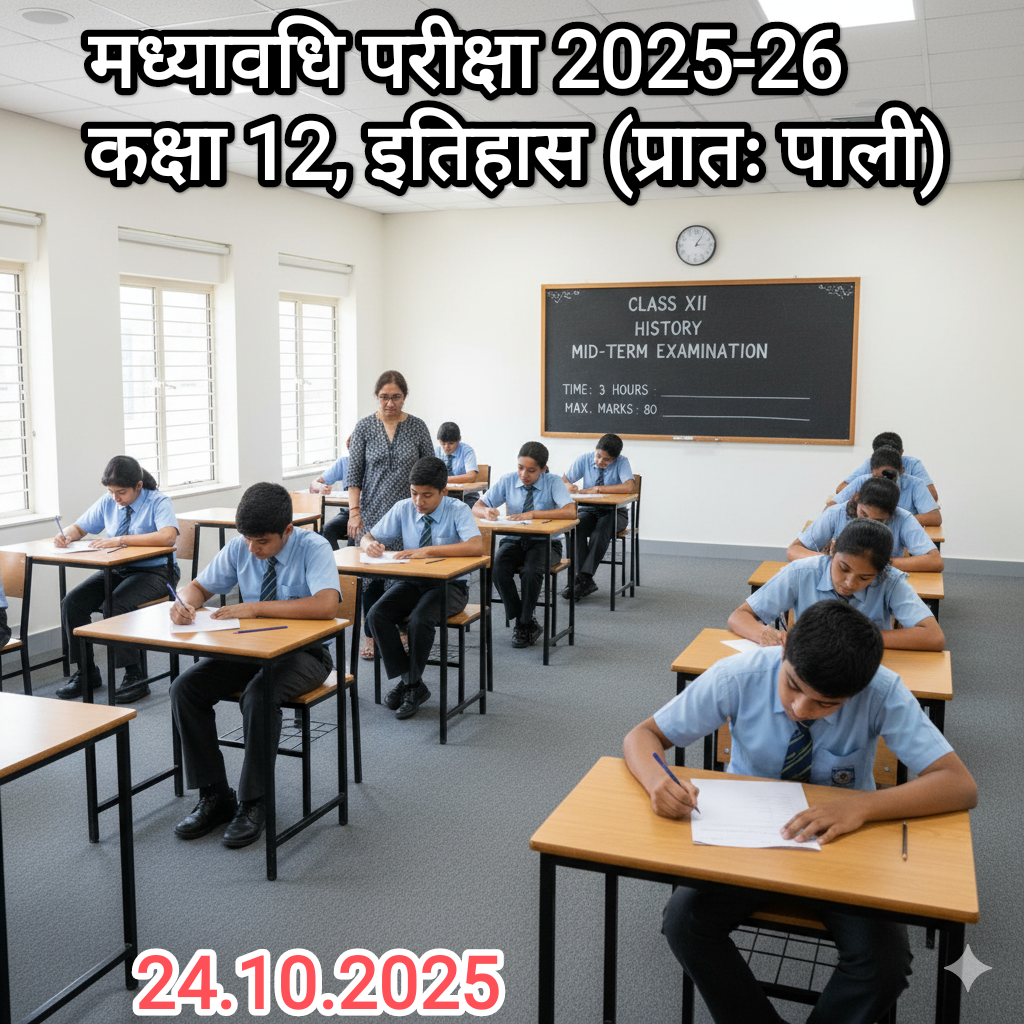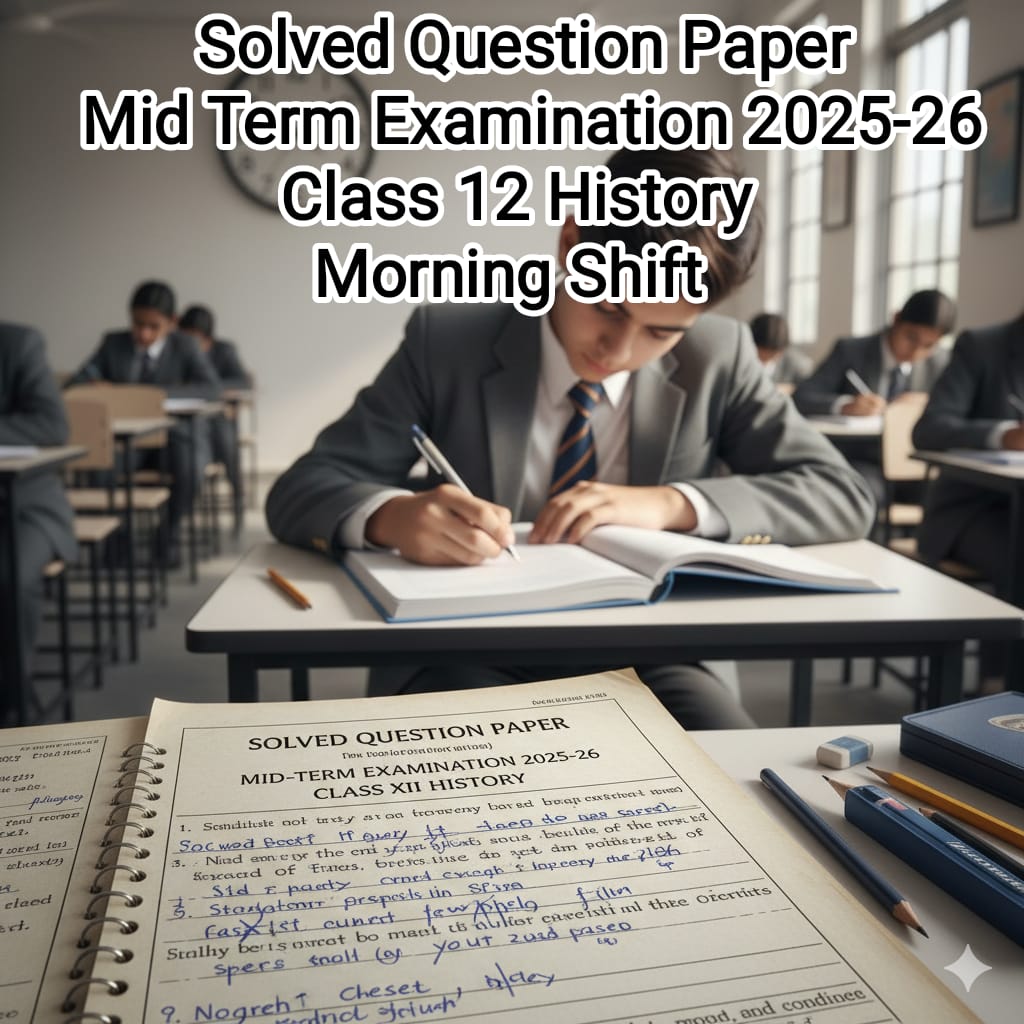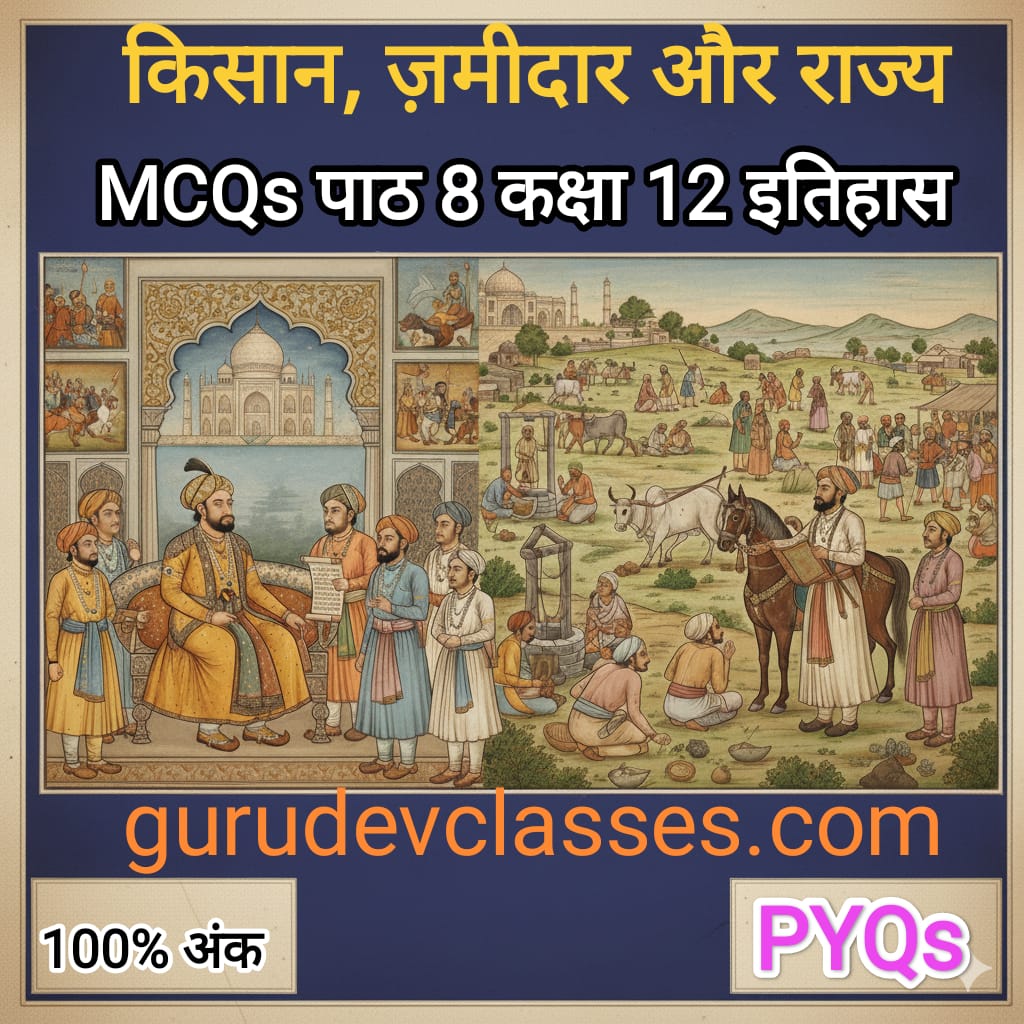- Where was Siddhartha Gautama born?
a) Bodh Gaya
b) Lumbini
c) Sarnath
d) Kushinagar
✅ Answer: b) Lumbini - Where did Buddha attain enlightenment?
a) Kushinagar
b) Sarnath
c) Vaishali
d) Bodh Gaya
✅ Answer: d) Bodh Gaya - Where did Buddha deliver his first sermon?
a) Vaishali
b) Sarnath
c) Lumbini
d) Rajgir
✅ Answer: b) Sarnath - What is the term used for Buddha’s first sermon?
a) Mahaparinibbana
b) Dharmachakra Pravartana
c) Dhammapada
d) Bodhipakkhiya Dhamma
✅ Answer: b) Dharmachakra Pravartana - What language were the early Buddhist texts written in?
a) Sanskrit
b) Tamil
c) Prakrit
d) Pali
✅ Answer: d) Pali - The teachings of the Buddha were compiled by his followers into:
a) Four Vedas
b) Tripitaka
c) Manusmriti
d) Angas
✅ Answer: b) Tripitaka - Jaina texts were compiled in:
a) Prakrit
b) Pali
c) Sanskrit
d) Tamil
✅ Answer: a) Prakrit - Mahavira is considered the ___ Tirthankara.
a) 22nd
b) 23rd
c) 24th
d) 25th
✅ Answer: c) 24th - What is the meaning of the term ‘Tanha’ in Buddhism?
a) Knowledge
b) Desire
c) Enlightenment
d) Death
✅ Answer: b) Desire - What is the Eightfold Path known as in Buddhism?
a) Dhammapada
b) Arya Astangika Marga
c) Bodhipakkhiya Dhamma
d) Vinaya
✅ Answer: b) Arya Astangika Marga - The Sangha was an association of:
a) Rulers
b) Traders
c) Monks and Nuns
d) Brahmanas
✅ Answer: c) Monks and Nuns - What was the name of Buddha’s foster mother who joined the Sangha?
a) Maitreyi
b) Khema
c) Mahapajapati Gotami
d) Vishakha
✅ Answer: c) Mahapajapati Gotami - The early texts suggest that Buddha’s followers came from:
a) Only upper castes
b) Only Kshatriyas
c) All social backgrounds
d) Only Vaishyas
✅ Answer: c) All social backgrounds - What were Viharas?
a) Temples
b) Monasteries
c) Prayer halls
d) Palaces
✅ Answer: b) Monasteries - Stupas were built to house:
a) Books
b) Buddhist monks
c) Relics of Buddha
d) Kings’ ashes
✅ Answer: c) Relics of Buddha - Which of the following is a symbol of the Buddha’s enlightenment?
a) Lotus
b) Stupa
c) Bodhi Tree
d) Dharma Chakra
✅ Answer: c) Bodhi Tree - Sanchi is located in:
a) Bihar
b) Uttar Pradesh
c) Madhya Pradesh
d) Rajasthan
✅ Answer: c) Madhya Pradesh - The gateways of Sanchi Stupa are called:
a) Mandapas
b) Toranas
c) Prakaras
d) Arches
✅ Answer: b) Toranas - Which Mauryan emperor supported Buddhism?
a) Chandragupta
b) Bindusara
c) Ashoka
d) Brihadratha
✅ Answer: c) Ashoka - Buddha is represented symbolically in early sculptures by:
a) Human form
b) Stupa
c) Tree
d) Both b and c
✅ Answer: d) Both b and c - Which of the following is not a part of the Tripitaka?
a) Sutta Pitaka
b) Vinaya Pitaka
c) Abhidhamma Pitaka
d) Mahabharata
✅ Answer: d) Mahabharata - The Jatakas are stories about:
a) Kings
b) Merchants
c) Buddha’s previous births
d) Jain monks
✅ Answer: c) Buddha’s previous births - The earliest Viharas were made of:
a) Bricks
b) Wood
c) Stone
d) Caves
✅ Answer: b) Wood - According to Buddhist tradition, the last words of Buddha were:
a) “Desire is the root of suffering.”
b) “Everything is subject to change.”
c) “Be lamps unto yourselves.”
d) “I am the awakened one.”
✅ Answer: c) “Be lamps unto yourselves.” - Which of the following emphasized asceticism and self-discipline?
a) Vedic Brahmanism
b) Buddhism
c) Jainism
d) Both b and c
✅ Answer: d) Both b and c - According to Jain tradition, the teachings of Mahavira were compiled by:
a) Gautama Buddha
b) Bhadrabahu
c) Vardhamana
d) Sthulabhadra
✅ Answer: b) Bhadrabahu - Jaina scholars produced a wealth of literature in:
a) Sanskrit
b) Pali
c) Prakrit
d) Tamil
✅ Answer: c) Prakrit - What was the primary goal of Jainism?
a) Salvation through rituals
b) Liberation from rebirth
c) Accumulation of karma
d) Devotion to deities
✅ Answer: b) Liberation from rebirth - Jaina teachings highlight the practice of:
a) Sacrifice
b) Fasting only
c) Ahiṃsā (non-violence)
d) Worship of deities
✅ Answer: c) Ahiṃsā (non-violence) - In Jaina philosophy, karma is:
a) A reward for devotion
b) A blessing
c) Fine dust that attaches to the soul
d) A spiritual guide
✅ Answer: c) Fine dust that attaches to the soul - Which one of the following did not belong to the Shramana tradition?
a) Ajivikas
b) Buddhists
c) Jains
d) Vedic priests
✅ Answer: d) Vedic priests - Shramana traditions emerged around:
a) 1500 BCE
b) 1000 BCE
c) 600 BCE
d) 200 CE
✅ Answer: c) 600 BCE - The stupa at Sanchi is dated to the time of:
a) Ashoka and later additions
b) Mahavira
c) Chandragupta Maurya
d) Kalidasa
✅ Answer: a) Ashoka and later additions - Which one of the following is an architectural feature of a stupa?
a) Garbhagriha
b) Harmika
c) Shikhara
d) Mandapa
✅ Answer: b) Harmika - What is a ‘harmika’ in a stupa?
a) Pillar
b) Altar
c) Square railing at the top
d) Monastery
✅ Answer: c) Square railing at the top - Which structure surrounded the mound of a stupa?
a) Pillars
b) Vihara
c) Pradakshina patha
d) Arched gateway
✅ Answer: c) Pradakshina patha - Which dynasty patronised Amaravati Stupa?
a) Nandas
b) Guptas
c) Satavahanas
d) Kushanas
✅ Answer: c) Satavahanas - Which Buddhist council is mentioned in the NCERT chapter?
a) First
b) Second
c) Third
d) Fourth
✅ Answer: a) First - Who is credited with convening the first Buddhist council?
a) Ashoka
b) Ajatashatru
c) Bimbisara
d) Mahakasyapa
✅ Answer: b) Ajatashatru - The function of the Sangha was to:
a) Collect taxes
b) Protect the empire
c) Promote Buddhist teachings
d) Worship Hindu gods
✅ Answer: c) Promote Buddhist teachings - Jatakas were written in:
a) Prakrit
b) Pali
c) Sanskrit
d) Tamil
✅ Answer: b) Pali - In early depictions, the Buddha was represented through:
a) Paintings
b) Sculptures
c) Symbols
d) Temples
✅ Answer: c) Symbols - What does the stupa symbolize in Buddhism?
a) Political power
b) Material wealth
c) Enlightenment
d) Rebirth
✅ Answer: c) Enlightenment - Which of the following is used for circumambulation?
a) Mandala
b) Torana
c) Pradakshina patha
d) Harmika
✅ Answer: c) Pradakshina patha - The structure built over the relics of Buddha is called a:
a) Chaitya
b) Vihara
c) Mandapa
d) Stupa
✅ Answer: d) Stupa - Which region was not associated with early Buddhist activity?
a) Magadha
b) Gandhara
c) Tamilakam
d) Saurashtra
✅ Answer: c) Tamilakam - Buddhist literature refers to non-Brahmanical ideas as:
a) Dharma
b) Shramana
c) Veda
d) Sutra
✅ Answer: b) Shramana - What was the original purpose of stupas before Buddhist modification?
a) Places of trade
b) Royal gardens
c) Burial mounds
d) Temple halls
✅ Answer: c) Burial mounds - According to the NCERT, symbols like lotus and wheel reflect:
a) Rituals
b) Abstract qualities or events
c) Historical narratives
d) Decorative art
✅ Answer: b) Abstract qualities or events - The Buddhist text Mahaparinibbana Sutta describes:
a) First sermon
b) Birth of Buddha
c) Buddha’s last days
d) Formation of Sangha
✅ Answer: c) Buddha’s last days
MCQ Class 12 History Chapter 4 -Thinkers, Beliefs and Buildings
By gurudev
Updated on:
